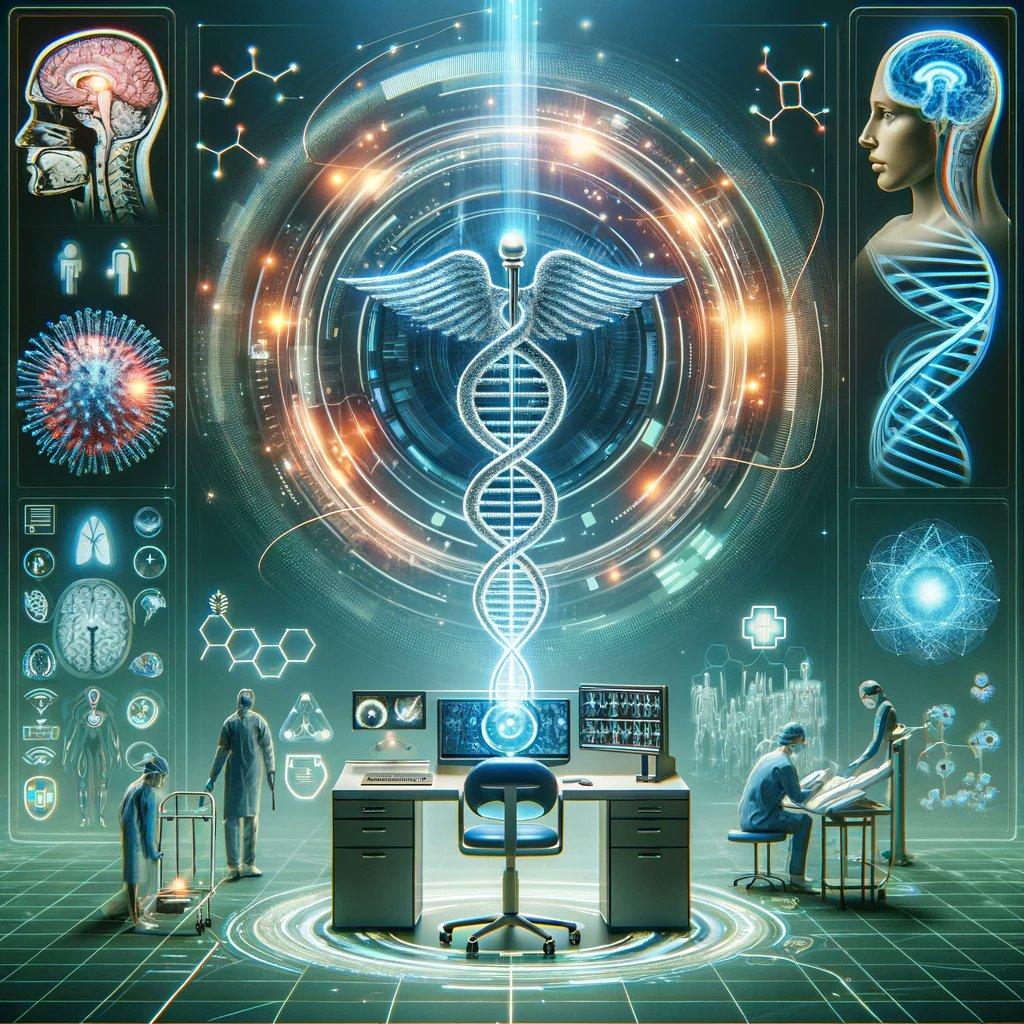Looking ahead, the potential of AI in healthcare is boundless. Ongoing research explores advanced applications, such as AI-powered robotic surgery and virtual nursing assistants. Experts predict that AI will not replace healthcare professionals but augment their capabilities, leading to more efficient, personalized, and accessible healthcare.
In the dynamic realm of healthcare, a game-changer has emerged, and its name is Artificial Intelligence (AI). Transitioning from the realms of science fiction to tangible reality, AI has become a driving force, reshaping the landscape of modern medicine and redefining our approach to healthcare.
AI’s transformative journey in medicine begins with diagnosis. Empowered by vast datasets of medical images, AI algorithms showcase an unparalleled precision in identifying diseases, often rivaling or even surpassing human experts. Whether analyzing X-rays, MRIs, or CT scans, AI systems excel in detecting anomalies such as tumors, fractures, or neurological disorders. In oncology, AI’s proficiency in discerning subtle patterns in tissue samples aids in early cancer detection, a pivotal factor in successful treatment.
Moving beyond diagnosis, AI flexes its muscles in treatment planning. By scrutinizing a patient’s medical history, genetic information, and current health status, AI suggests personalized treatment regimens. This proves revolutionary in cancer treatment, where AI algorithms assist oncologists in devising targeted therapies based on a patient’s tumor genetics, significantly improving treatment efficacy and minimizing side effects.
The pharmaceutical domain reaps the benefits of AI as well. Traditionally, drug development is a time-consuming and costly process, but AI algorithms accelerate it by predicting how different drugs interact with biological systems. This not only expedites new drug discovery but also aids in repurposing existing drugs for novel therapeutic uses. https://www.facebook.com/groups/onlyMSBgrafix

AI doesn’t stop there; it revolutionizes patient care. Wearable technologies, equipped with AI algorithms, continuously monitor vital signs, offering real-time data that predicts and prevents emergencies. In chronic disease management, AI tools analyze patient data to recommend lifestyle adjustments and medication changes, ushering in a proactive era of healthcare.
Despite its promise, integrating AI in healthcare poses challenges. Data privacy and security are paramount concerns due to the sensitive nature of healthcare data. Algorithmic bias is another hurdle; if AI systems are trained on limited or skewed datasets, their recommendations may carry biases, raising ethical questions about AI’s role in healthcare decision-making and the need for transparent, unbiased algorithms. اپ کا موبائل 24 گھنٹے اپ کی باتیں سن رہا ہے
Looking ahead, the potential of AI in healthcare is boundless. Ongoing research explores advanced applications, such as AI-powered robotic surgery and virtual nursing assistants. Experts predict that AI will not replace healthcare professionals but augment their capabilities, leading to more efficient, personalized, and accessible healthcare.
Artificial Intelligence is undeniably transforming modern medicine. From boosting diagnostic accuracy to personalizing treatment plans, AI is steering healthcare towards precision and patient-centricity. As we navigate challenges and embrace opportunities, the synergy between AI and human expertise is poised to usher in a new era in healthcare marked by innovation and improved patient outcomes. The Pathfinder Chronicles of healthcare continue, with AI as our guiding force into the future.

